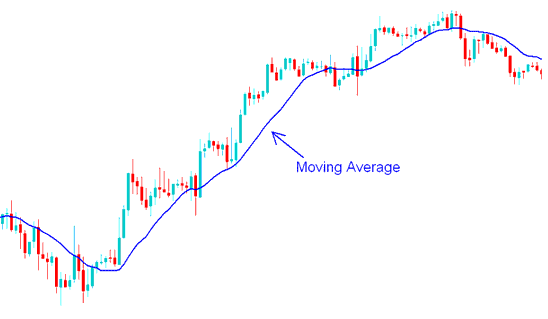MA Indices Strategies
- Price Period of MA
- SMA, EMA, LWMA and SMMA
- Moving Average Trend Identification
- MA Whipsaws in Range Market
- MA Crossover Method
- Moving Average Support and Resistance
- How to Select a MA
- Short Term and Long Term Setups
- 20 Stock Indices Pips Price Range Strategy
About the Moving Average Stock Indices Strategy
Stock Indices Trading Moving average is one of the most widely used Indicator because it is simple and easy to use.
This Indicator is a stock trend following technical indicator that is used by Stock traders for three things:
- Identify the beginning of a new stock market stock trend
- Measure the sustainability of the new stock trend
- Identify the end of a stock trend and signal a reversal stock signal
The Stock Indices Trading Moving Average or Stock Indices Trading MA is used to smooth out the volatility of price action. The MA is an overlay technical indicator & it is placed on top or superimposed on the price chart.
On the example stock chart below the blue line represents a 15 period MA, which acts to smooth out the volatility of the price action.

Stock Indices Trading Moving Average Technical Indicator - MT4 Stock Index Chart Indicators
Calculation of the Moving Average
The Stock Indices Trading Moving Average is also known as MA - is calculated as an average of price using the most recent price data.
If the MA uses the 10 period to calculate the average of the price then it is known as to as a 10 period stock indices moving average, because most traders use the day as the standard price period we shall just refer to it as the 10 day Moving Average.
To calculate the ten day MA the price of the last 10 days is averaged, the stock indices moving average indicator is then updated constantly after every new price period. So after every new price period is formed the moving average is then calculated afresh using the most recent 10 price periods, that is why it is called a moving average because the average is constantly moving when price data is updated.


